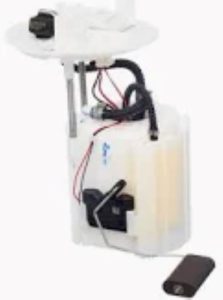The fuel pump replacement can now improve the MPG since the restored efficient fuel delivery assures the engine gets the right ratio of fuel to air for its optimal combustion process. As fuel pumps grow older-after around more than 100,000 miles-the internal components experience wear and tear that reduces the capability of the pump to maintain constant fuel pressure. It could be because an aging pump supplies only 80% of its capacity, and the engine works much harder with consequently lowered fuel efficiency. Replace the pump, and it is back at full capacity, once again delivering fuel at constant pressure between 30 and 80 PSI, which allows the balance of fuel and air mixtures, providing better combustion efficiency.
A new fuel pump minimizes fuel wastage, particularly on accelerations or higher demands placed on the engine. Older, less efficient pumps can then cause small fuel surges and drops that may create a rich mixture of fuel-to-air. The result of a rich mixture is incomplete combustion wherein some fuel leaves the engine unburnt; this naturally affects MPG. In fact, studies show that up to 10% improvement in fuel economy can be realized with just the right balance of fuel mixture, making a new pump a very worthy investment for drivers looking to save on fuel costs.
Replacing the fuel pump will also minimize electrical strain, as newer models tend to draw more power. This does not only affect performance related to the pump's performance but also the fuel efficiency, as the increased load pulls on the vehicle's electrical system. A new pump works efficiently, consuming only the standard 12 volts and therefore reducing unnecessary strain to support optimal MPG.

Other issues, like clogged filters, further affect MPG because they would, in essence, make the pump work harder and eat more fuel. In fact, when any replacement of a fuel pump is performed, the replacement of the fuel filter usually accompanies it, since this simple step further smoothes fuel flow and optimizes pump efficiency for maximum MPG. Instead, periodic maintenance that includes replacing the fuel filter every 20,000 to 30,000 miles keeps the fuel pump free from blockages so that it works efficiently for smoother fuel delivery.
Improved for ethanol compatibility, this new fuel pump ensures that in colder climates or areas of the country where ethanol-blended fuel is used, your MPG doesn't suffer because of the type of fuel you run in your car. Typically, ethanol has less energy compared to gasoline, reducing MPG by about 3-4%. Older pumps were not designed to work with ethanol and could malfunction due to increased internal wear. Replacing your pump with an ethanol-compatible Fuel Pump further increases efficiency with these fuel types and aids in better fuel economy.
It essentially replaces an old or failing fuel pump, optimizing the fuel system to provide correct delivery of fuel and effective combustion, thereby translating into better MPG and lower fuel costs.